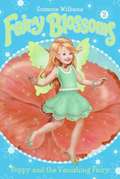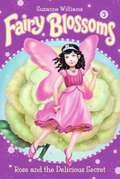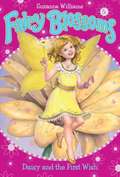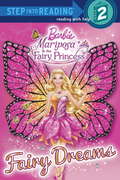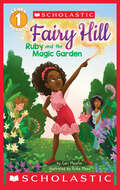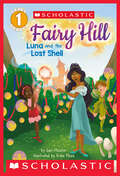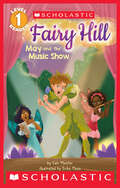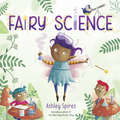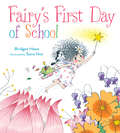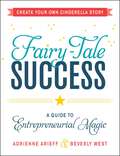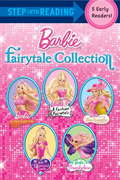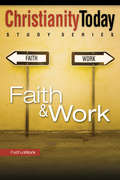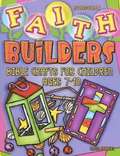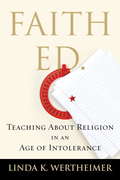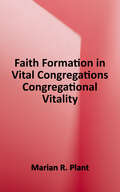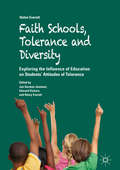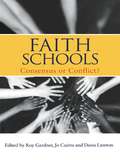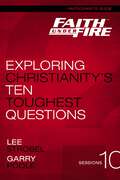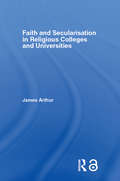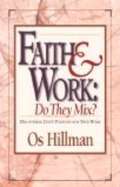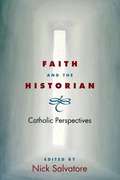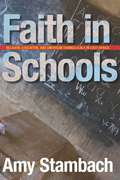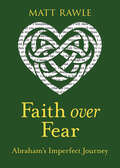- Table View
- List View
Fairy Blossoms #2: Poppy and the Vanishing Fairy
by Suzanne Williams Fiona SansomMistress Lily is gone for the day, and Poppy hopes she'll hurry home. Then Mistress Lily doesn't come back on time-something must be wrong! With the help of their flying ponies, Poppy and her friends set off to find out what's happened to their teacher. They discover a magical creature and a mysterious enchantment!
Fairy Blossoms #3: Rose and the Delicious Secret
by Suzanne Williams Fiona SansomEveryone is delighted when delicious treats start appearing overnight at Mistress Lily's Fairy School! Everyone except Cook, that is-he doesn't want someone else to do his job. Can Rose find out what's going on and restore harmony to the Cloverleaf Cottage kitchen?
Fairy Blossoms #5: Daisy and the First Wish
by Suzanne Williams Fiona SansomDaisy loves helping humans-it's what she's always wanted to do. Then she meets a little girl named Nina who makes an impossible wish. Daisy's magic wand can't give Nina what she wants-but maybe Daisy can find another way!
Fairy Dreams (Barbie)
by Mary Man-KongGirls ages 4-6 will love learning to read on their own with this Step 2 Step into Reading leveled reader based on Barbie's latest film.
Fairy Hill: Fairy Hill #1) (Scholastic Reader, Level 1)
by Cari MeisterMeet the magical fairies of Fairy Hill!Fairy Hill is a magic forest where fairies live, play, and have lots of sparkly adventures in this Level 1 reader series! Ruby, Luna, and May are best friends. These young fairies are all looking forward to earning their big wings from the Fairy Queen. But first they each have to do something extra kind or brave. In book #1, Ruby, May, and Luna discover that Fairy Hill's magic garden has lost its sparkle! The fairies try everything to make the garden shine again, but nothing works. Then, a lost baby deer comes to the garden for help. The only way to help it find its way home is to feed it magic clover. Then Ruby has an idea! Will she be able to fix the garden and help the baby deer? Will the Fairy Queen visit the fairy friends?
Fairy Hill: Fairy Hill #2) (Scholastic Reader, Level 1)
by Cari MeisterIt's time for another adventure in Fairy Hill!Fairy Hill is a magic forest where fairies live, play, and have lots of sparkly adventures in this Level 1 reader series! Ruby, Luna, and May are best friends. These young fairies are all looking forward to earning their big wings from the Fairy Queen. But first they each have to do something extra kind or brave. In book #2, a magic shell goes missing! Without it, the glow globes that light up Fairy Hill will all go dark -- and the Fairy Queen will have to cancel the Fairy Ball! Luna, Ruby, and May go looking for the shell. They find out a chipmunk is using it to light his tree. Luna has an idea to get the shell back! Will she be able to bring the light back to Fairy Hill before the ball?
Fairy Hill: May and the Music Show (Scholastic Reader, Level 1)
by Cari Meister Erika MezaMeet the magical fairies of Fairy Hill!Fairy Hill is a magic forest where fairies live, play, and have lots of sparkly adventures in this Level 1 reader series! Ruby, Luna, and May are best friends. These young fairies are all looking forward to earning their big wings from the Fairy Queen. But first they each have to do something extra kind or brave. In this third book, Ruby, May, and Luna are performing in a fairy music show! It is their first show, and the girls are nervous. They practice together -- and Luna gets ready for her big solo. But then, when it's time to sing, Luna gets stage fright! Can May help her friend finish the concert? Will the Fairy Queen visit the fairies again?
Fairy Science (Fairy Science)
by Ashley SpiresAn enchanting STEM-and-fairy-filled picture book from the award-winning author-illustrator of The Most Magnificent Thing!All the fairies in Pixieville believe in magic--except Esther. She believes in science.When a forest tree stops growing, all the fairies are stumped--including Esther. But not for long! Esther knows that science can get to the root of the problem--and its solution! Whether you believe in fairy magic or the power of science, you will be charmed by Esther, the budding fairy scientist.
Fairy's First Day of School
by Bridget HeosFrom the author of Mustache Baby, a picture book about a tiny fairy who has all the typical experiences a child might on the first day of school, but with silly fairy-like twists. In this humorous and reassuring picture book from the author of Mustache Baby, a sweet fairy has a fun-filled first day at school. Her experience is remarkably similar to the first day of preschool for human children. From circle time (sitting crisscross berry sauce) to center time (art, spells, tooth), all the activities one might encounter at school are explored, with sweet fairy-like touches. Best of all is the kind, warm teacher and plenty of new friends. The perfect story to ease fears and build anticipation for any child—human or fairy—starting school for the first time.
Fairy-Tale Success
by Beverly West Adrienne ArieffAdvice for achieving your business goals! Meet Skyler Bouchard, founder and editor-in-chief of NYU's first culinary website, NYU Spoon; Kit Hickey, cofounder of the menswear company Ministry of Supply; and Daisy Jenks, founder of the video and film production company Jenks & Co. These amazing women and countless others have turned their passions into a thriving venture--and now, you can, too! Written by business experts Adrienne Arieff and Beverly West, Fairy-Tale Success not only shares the success stories of innovative female entrepreneurs like Skyler, Kit, and Daisy, but also offers real-life strategies for launching your own business. Arieff and West guide you through the entire process, with important entrepreneurial lessons that show you how to turn your ideas into a reality and teach you the skills needed to ensure your business's sustainability. You'll find thought-provoking exercises and quizzes, sample budgets, and examples of successful marketing strategies that will help you design a business plan that works for you. Complete with advice from a talented and inspiring advisory board, Fairy-Tale Success proves that you don't need a fairy godmother to make your dreams come true--all the entrepreneurial magic you need is already inside of you.
Fairy-Tale Success: A Guide to Entrepreneurial Magic
by Adrienne ArieffAdvice for achieving your business goals!Meet Skyler Bouchard, founder and editor-in-chief of NYU's first culinary website, NYU Spoon; Kit Hickey, cofounder of the menswear company Ministry of Supply; and Daisy Jenks, founder of the video and film production company Jenks & Co. These amazing women and countless others have turned their passions into a thriving venture--and now, you can, too!Written by business experts Adrienne Arieff and Beverly West, Fairy-Tale Success not only shares the success stories of innovative female entrepreneurs like Skyler, Kit, and Daisy, but also offers real-life strategies for launching your own business. Arieff and West guide you through the entire process, with important entrepreneurial lessons that show you how to turn your ideas into a reality and teach you the skills needed to ensure your business's sustainability. You'll find thought-provoking exercises and quizzes, sample budgets, and examples of successful marketing strategies that will help you design a business plan that works for you.Complete with advice from a talented and inspiring advisory board, Fairy-Tale Success proves that you don't need a fairy godmother to make your dreams come true--all the entrepreneurial magic you need is already inside of you.
Fairytale Collection (Barbie)
by Random HouseThis magical collection includes five early readers based on the Barbie films Barbie: Fashion Fairytale, Barbie in a Mermaid Tale, Barbie and the Three Musketeers, Barbie and the Diamond Castle, and Barbie: Thumbelina. Featuring fairies, princesses, mermaids, and more, little girls ages 4 to 6 won't be able to resist!
Faith & Work (Christianity Today Study Series)
by Christianity Today InternationalThe Christian Today Study Series delves into today's vital cultural issues to get to the heart of what these topics mean to you.Each 8-week study is based on articles written by some of today's leading Christian authors and published by the Christianity Today magazines. These remarkable studies will foster deep, authentic, and relevant discussion that will challenge and grow any small group.Faith & Work will take on a variety of topics, such as:Work-Drudgery or Delight?Ambition and AchievementA Witness at the WorkplaceWork & Sabbath RestBased on articles by a variety of authors, such as:Chuck ColsonChristine GardnerMarshall Shelley
Faith Builders: Bible Crafts For Children Ages 7-10
by Nadia C. HerbertFaith Builders is a children’s ministry resource, containing a whole year of Sunday school teaching in one book. It features fifty exciting craft projects that children will enjoy making while learning about the Bible and building their faith. Each craft has a theme that is linked to a related Bible verse and combined with a complete lesson. For the teacher, there are clear, step-by-step instructions to follow, along with a materials list and an indication of the time needed to complete the project. Crafts include a bird feeder, seashell wind chimes and even a marshmallow caterpillar! Faith Builders utilizes many wonderful mediums through which children can express their creative side and explore their faith in a group setting. This ready-to-use book provides a hands-on, fun way of bringing God’s Word to children that will maintain their enthusiasm for Sunday school.
Faith Ed
by Linda K. WertheimerAn intimate cross-country look at the new debate over religion in the public schools A suburban Boston school unwittingly started a firestorm of controversy over a sixth-grade field trip. The class was visiting a mosque to learn about world religions when a handful of boys, unnoticed by their teachers, joined the line of worshippers and acted out the motions of the Muslim call to prayer. A video of the prayer went viral with the title "Wellesley, Massachusetts Public School Students Learn to Pray to Allah." Charges flew that the school exposed the children to Muslims who intended to convert American schoolchildren. Wellesley school officials defended the course, but also acknowledged the delicate dance teachers must perform when dealing with religion in the classroom.Courts long ago banned public school teachers from preaching of any kind. But the question remains: How much should schools teach about the world's religions? Answering that question in recent decades has pitted schools against their communities.Veteran education journalist Linda K. Wertheimer spent months with that class, and traveled to other communities around the nation, listening to voices on all sides of the controversy, including those of clergy, teachers, children, and parents who are Muslim, Jewish, Christian, Sikh, or atheist. In Lumberton, Texas, nearly a hundred people filled a school-board meeting to protest a teacher's dress-up exercise that allowed freshman girls to try on a burka as part of a lesson on Islam. In Wichita, Kansas, a Messianic Jewish family's opposition to a bulletin-board display about Islam in an elementary school led to such upheaval that the school had to hire extra security. Across the country, parents have requested that their children be excused from lessons on Hinduism and Judaism out of fear they will shy away from their own faiths.But in Modesto, a city in the heart of California's Bible Belt, teachers have avoided problems since 2000, when the school system began requiring all high school freshmen to take a world religions course. Students receive comprehensive lessons on the three major world religions, as well as on Sikhism, Hinduism, Buddhism, and often Shintoism, Taoism, and Confucianism. One Pentecostal Christian girl, terrified by "idols," including a six-inch gold Buddha, learned to be comfortable with other students' beliefs. Wertheimer's fascinating investigation, which includes a return to her rural Ohio school, which once ran weekly Christian Bible classes, reveals a public education system struggling to find the right path forward and offers a promising roadmap for raising a new generation of religiously literate Americans.
Faith Formation in Vital Congregations
by Marian R. PlantThis book provides how congregations can engage in revitalizing adult faith formation practices.
Faith Schools, Tolerance and Diversity: Exploring The Influence Of Education On Students' Attitudes Of Tolerance
by Jan Germen Janmaat Edward Vickers Henry EverettThis book examines the effects of faith schools on social cohesion and inter-ethnic relations. Faith schools constitute approximately one third of all state-maintained schools and two fifths of the independent schools in England. Nevertheless, they have historically been, and remain, controversial. In the current social climate, questions have been raised about the ability of faith schools to promote Community Cohesion and, included within that, their ability to promote tolerance. This book explores one aspect of the debate by examining the effect that faith schools have on their students’ attitudes of tolerance. As well as asking what differences exist between students in faith and non-faith schools, it also looks at which aspects of the schools might be affecting the students and their attitudes towards different minorities. The book is a must-read for students and researchers in the fields of education and religious studies, as well as anyone with an interest in the place of faith schools in a modern multicultural society.
Faith Schools: Consensus or Conflict?
by Roy Gardner Jo Cairns Denis LawtonUntil fairly recently the separation of pupils according to religion was felt to be compatible with a comprehensive education. That consensus no longer holds and there is a strong positive lobby either to absorb faith schools altogether within the state system or at least to dilute their membership ensuring they include children from other faiths, or no faith at all. This book addresses the current concerns, questions and interest surrounding the legitimacy, support and intended expansion of faith schools. Divided into five sections, it includes chapters on: * the legal frameworks for faith schools and the rights of the child* faith-based schools in the UK, Northern Ireland, France and the USA* the impact of faith schools on pupil performance* faith schools, religious education and citizenship* political and research issues. Faith Schools: Consensus or Conflict? is of interest to educators, policymakers, researchers and students of education, religion and sociology.
Faith Under Fire Participant's Guide: Exploring Christianity's Ten Toughest Questions
by Lee Strobel Garry D. PooleThis dynamic study answers tough questions about the existence of God, Christianity and Islam, the reliability of the Bible, faith and science, and many others. Best-selling author Lee Strobel hosts spirited discussions between well-respected Christians, people of other faiths, or people with no faith at all on the most important spiritual and social issues.This Participant’s Guide will help you sift through controversial and relevant issues that surround the Christian faith and many of its most pertinent cultural issues. Each session features discussion in which leading Christian and non-Christian voices engage in forceful but fair debate. Lee Strobel provides additional comments to guide small group discussion. Session titles include: Is the Supernatural Real? Is Jesus a Prophet or the Son of God? Did Jesus Rise from the Dead? Do All Roads Lead to God? Is the Bible Bogus? Does Science Point to a Creator? Is Anything Beyond Forgiveness? Why Does God Allow Pain and Suffering? The Mystery of the Trinity? Do Christians and Muslims Worship the Same God? Designed for use with the video.
Faith and Revelation: Knowing God Through Sacred Scripture
by Scott Hahn James SociasIn this new Didache Series textbook entitled Faith and Revelation, Dr. Scott' Hahn presents the Church's teaching regarding Divine Revelation. His straight forward and practical approach shows how faith and reason work together, the supernatural complementing and building on the natural.
Faith and Secularisation in Religious Colleges and Universities
by James ArthurThis book is a detailed study of higher education institutions affiliated to particular religions. It considers the debates surrounding academic freedom, institutional governance, educational policy, mission and identity together with institutions’ relations with the state and their wider communities. A wide range of institutions are examined, including: Christian, Islamic and Jewish universities in the US, Europe and the Middle East. Essentially, this volume questions whether such institutions can be both religious and a ‘university’ and also considers the appropriate role of religious faith within colleges and universities.
Faith and Work: Discovering God’s Purposes for Your Work
by Os Hillman"I have just finished reading Faith & Work: Do They Mix?. Thank you so much for writing it and making it so readily available. Having recently read Ed Silvoso's book, Anointed for Business, I was prepared for yours to be similar. However, I found your book to be very complementary and to go much deeper regarding individual Christian's walk in the marketplace. Both books are inspirational and were a real revelation to me."-Dennis, AustraliaDiscover God's promises for your work. When you go to work on Monday, do you take your faith with you? Whether you're in an office, on a construction site, or at home, we all need to experience God in our work. This valuable resource brings the reader to a greater understanding of what God thinks about our work, how He calls us to our trade, and how we can bring our faith along with us on Monday mornings. This book will encourage you to find purpose and meaning in your work life!
Faith and the Historian: Catholic Perspectives
by Nick SalvatoreFaith and the Historian collects essays from eight experienced historians discussing the impact of being "touched" by Catholicism on their vision of history. That first graduate seminar, these essays suggest, did not mark the inception of one's historical sensibilities; rather, that process had deeper, and earlier, roots. The authors--ranging from "cradle to the grave" Catholics to those who haven't practiced for forty years, and everywhere in between--explicitly investigate the interplay between their personal lives and beliefs and the sources of their professional work. A variety of heartfelt, illuminating, and sometimes humorous experiences emerge from these stories of intelligent people coming to terms with their Catholic backgrounds as they mature and enter the academy. Contributors include: Philip Gleason, David Emmons, Maureen Fitzgerald, Joseph A. McCartin, Mario T. Garcia, Nick Salvatore, James R. Barrett, and Anne M. Butler.
Faith in Schools
by Amy StambachHer story about American missionaries takes part in two parts of the world, says Stambach (educational policy and anthropology, U. of Wisconsin-Madison), East Africa and the US, and involves religion, education, secularism, and politics. She argues that during the early 1990s, shortly after the Berlin Wall fell, the US government and the World Bank decided to conscript missionary efforts into furthering US interests by making them a branch of development. She discusses 150 years of mission work in the US, using anthropology for Christian witness, teaching English in Tanzania, planting church schools in Kenya, school-community partnerships in Uganda, and a new anthropological ethnography of religion and education. Annotation c2010 Book News, Inc. , Portland, OR (booknews. com)
Faith over Fear: Abraham's Imperfect Journey
by Matt RawleNo journey is more imperfect than Abraham’s.In Faith over Fear, Matt Rawle invites you to discover the depth and complexity of faith through Abraham's inspiring yet imperfect story. This profoundly reflective book explores the twists and turns of Abraham's relationship with God, reminding us that faith isn’t about flawless trust—it’s about showing up, even when faced with doubt and uncertainty. Through vivid storytelling and rich spiritual insights, Faith over Fear helps you wrestle with faith as a dynamic, deeply human experience and learn to honor fear and trust in your spiritual walk. Whether navigating uncharted territory in life or seeking a renewed understanding of God’s promises, this book offers an uplifting reminder that grace is always ahead of us, calling us to move forward. Transform your perspective and reclaim your courage by stepping into this invitation to walk through life with faith that’s as messy as it is meaningful.
